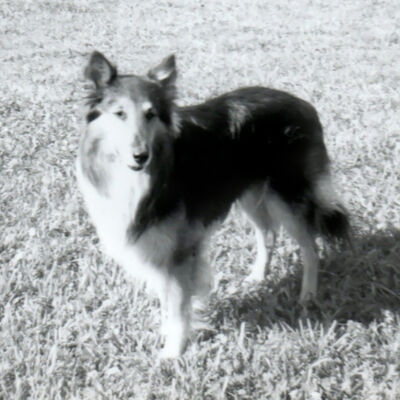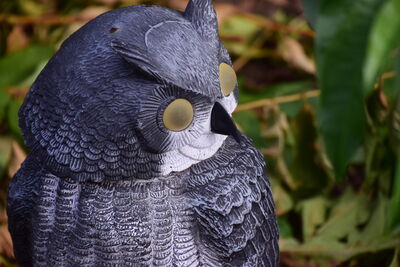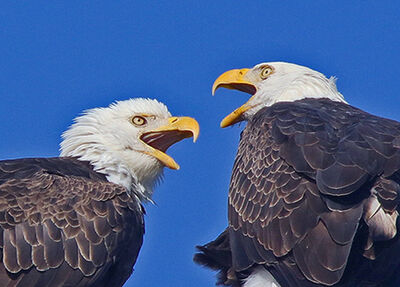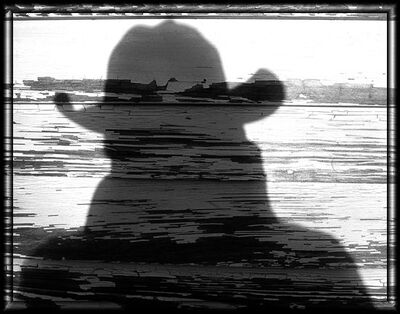12 or 16 bit JPEG
Jan 28, 2021 09:07:47 #
camerapapi wrote:
Modern JPEG files are of excellent quality, my Olympus camera JPEG files are simply outstanding in quality.
These JPEG files are not the same files of just a few years back. Artifacts are not common and subtle color changes although can happen are not as common as they were in the past.
These JPEG files are not the same files of just a few years back. Artifacts are not common and subtle color changes although can happen are not as common as they were in the past.
I think jpg compression hasn't changed at all, but the camera's have. I could be wrong, but I think jpg compression has remained the same for many years, if not from the very beginning. Editors and camera's are what changed. Attempts to improve jpg compression routines have not been very popular, mainly because jpg compression has always worked quite well.
camerapapi wrote:
Editing is based on 8 bits and does not offer the flexibility of RAW data. I have never been able to understand what happens when editing RAW data with 16 bits of information and a wide color space is compressed to a JPEG that has a much shorter color space and the bits count is cut in half.
Compressing from ProPhoto to sRGB is quite a compression. I use both files depending on my subject but I admit I have better results using JPEG with my Olympus bodies.
Editing is based on 8 bits and does not offer the flexibility of RAW data. I have never been able to understand what happens when editing RAW data with 16 bits of information and a wide color space is compressed to a JPEG that has a much shorter color space and the bits count is cut in half.
Compressing from ProPhoto to sRGB is quite a compression. I use both files depending on my subject but I admit I have better results using JPEG with my Olympus bodies.
To oversimplify it, 8 bit photo's have enough data for excellent photo's. It is said the human eye can only discern 10 million colors, yet an 8 bit photo can contain over 16 million colors. It may occasionally be true that editing in a wider spectrum can have major advantages, this is generally not important, and no where near as important as about every other aspect of a "good" photograph. I believe many folks think because jpg files are so much smaller than their raw counterparts, that the "data" is simply tossed away. This if no where near the truth. Compression encodes repeating data then decodes it when decompressing. Photo's, among other file types, don't compress so well because there is not enough repeating data. Actually, no data is lost at all, not one byte.
The data may change a bit, but again, generally that's not important to the human eye.
A sky for example may look blue to you, but to a computer it may have a thousand shades of blue. Jpg compression attempts, (and quite successfully) to encode similar colors (hopefully similar enough that the eye can't see the difference) and then encodes them as the same color. This makes compression WAY more efficient, and is why billions and billions of jpg photo's are portable, small and have spectacular color.
The good part is most humans can't tell the difference unless the compression used is excessive or repeated many times over (save your originals). Of course, if you wear the RAW T-shirt, you can instantly tell the difference, from a moving car, from across the street...
Jan 28, 2021 11:23:13 #
camerapapi wrote:
Modern JPEG files are of excellent quality, my Oly... (show quote)
Jpegs can be any color space, so that is different from the bit depth. for example If you shoot jpeg but have the camera set for adobe rgb that is what you get, a jpeg in adobe rgb. In photoshop if you are in prophoto you can convert to another color space like srgb and you get a choice of 'rendering intent' to decide how it maps the out of gamut colors into the smaller color space, whether it makes everything relative or to use a 'perceptual' mapping. Not saying i know how the sausage is made in that case, just try some different ones and see what looks right.
Jan 28, 2021 11:23:55 #
Flickwet wrote:
I know that RAW files tend to be 12-16 bit and thus the greater potential for color gradation and detail. Why haven't JPEGs increased in Bit depth?
Why don't you look into JPEG 2000?
Jan 28, 2021 12:38:45 #
The new kid on the block is HIEF files. These are lined up to replace JPEG’s and are available in newer camera bodies such as the Canon mirrorless. They are half the size of JPEG’s due to greater compression but are equal in quality. They have improved highlights, shadow detail and mid tones. They have a better dynamic range and getting back to the question asked have 16 bit colour as opposed to JPEG’s 8 bit. Another important detail is that they are not lossy so you can do none destructive edits.
Jan 28, 2021 13:13:23 #
larryepage wrote:
The vast majority of people who take photographs s... (show quote)
Does that mean most Hoggers are in the 1% to whom it does matter

Jan 28, 2021 16:15:51 #
hjkarten
Loc: San Diego, California
jlg1000 wrote:
The jpeg standard is fixed at 8 bits.
A new standard - the Jpeg2000 - was published in 2005, but did not get enough traction.
Jpeg2000 allows unlimited bit depths, so it does support 12 or 16 bits.
A new standard - the Jpeg2000 - was published in 2005, but did not get enough traction.
Jpeg2000 allows unlimited bit depths, so it does support 12 or 16 bits.
JP2000 and JP-XR is widely used in tech photography, particularly for biomedical/pathology applications. Our typical files are > 4-6 Gigabytes at 20:1 compression, up to nine different color channels at 16 bits/channel.
JP2000 can also be saved in lossless mode. But there are scant resources for altering and editing JP2000 files. Usually end up converting to TIFF, editing them, then reconverting back to JP2000 in lossless mode. But especially useful format when using superlarge files in excess of 5 Gigabytes/image. But standard version of PhotoShop is limited to files of 500 MB, and is painfully slow when reading and writing to/from TIFF. Need high end work station with huge amounts of RAM for images this size.
Jan 28, 2021 16:25:06 #
JohnR wrote:
Does that mean most Hoggers are in the 1% to whom it does matter 

I would not even say MOST Hoggers - I would say SOME - way less than 50% ........that are in the 1%.......
Jan 29, 2021 01:03:07 #
imagemeister wrote:
I would not even say MOST Hoggers - I would say SOME - way less than 50% ........that are in the 1%.......
Don't know about that ! Every time we have another of those interminable jpeg v raw posts - way more than 50% respond with things like "I only shoot raw", "real photographers only shoot raw" and so on. Additionally often added is the necessity to use FF, Lightroom, Photoshop and more recently mirrorless. IMHO its a perceived status thingo.

Jan 29, 2021 12:18:49 #
JohnR wrote:
Don't know about that ! Every time we have another of those interminable jpeg v raw posts - way more than 50% respond with things like "I only shoot raw", "real photographers only shoot raw" and so on. Additionally often added is the necessity to use FF, Lightroom, Photoshop and more recently mirrorless. IMHO its a perceived status thingo. 

I think the number of hoggers wearing the raw T-shirt is a small, but growing number. Only a handful jump in every raw discussion and attempt to sell the raw t-shirts to anyone that will listen. The number is growing, mainly because the internet is packed with faulty testimonials to the raw conundrum, along with the fact people, including photographers, are easily duped.
Whether one shoots only raw is a highly personal issue and is not right for all that many folks, certainly not ALL the time. On a scale of one to 100 of things that make a photograph good, raw is on the very bottom of the list.
Jan 29, 2021 18:27:30 #
JohnR wrote:
Don't know about that ! Every time we have another of those interminable jpeg v raw posts - way more than 50% respond with things like "I only shoot raw", "real photographers only shoot raw" and so on. Additionally often added is the necessity to use FF, Lightroom, Photoshop and more recently mirrorless. IMHO its a perceived status thingo. 

Yes, you are correct , and, it is also a religion .....

 Shooting raw is only important to those already shooting it ! Those who do not (IMO, the VAST majority on this site) are very reticent and could not care less...or are ashamed to admit it - for being ostracized on this (or any) forum. Of course, I could be wrong - but I have been here 9 years now ....
Shooting raw is only important to those already shooting it ! Those who do not (IMO, the VAST majority on this site) are very reticent and could not care less...or are ashamed to admit it - for being ostracized on this (or any) forum. Of course, I could be wrong - but I have been here 9 years now ....  Me, I shoot JPEG but I have thick skin.
Me, I shoot JPEG but I have thick skin..
Jan 30, 2021 21:02:50 #
amfoto1
Loc: San Jose, Calif. USA
It makes sense to EDIT images in 16 bit (or higher) to have the most latitude for adjustments, better gradations without "banding" and such.
But it also makes sense that the final output be reduced to 8 bit because that is all that's needed for most applications. One time to save an image as 16 bit (such as a TIFF or a PSD) is when planning to do further work on it.
Every camera initially captures a RAW file... most are 14 bit, though a few use 12 bit (sometimes to allow faster frame rates or for other reasons). Even rarer are cameras that capture 16 bit images. But all post-processing software interpolates 12 or 14 bit as 16 bit.
If you "shoot JPEGs", that simply means you're doing immediate, in-camera RAW conversions. It's EXACTLY the same thing if shoot RAW and then do post-processed RAW conversions "as shot" (which many camera manufacturers' own software can do).
The advantage of "shooting RAW" is that there is quite a bit more latitude for changes to images after the fact, if you decide to make them.
Here's an interesting article comparing 8 bit versus 16 bit: https://petapixel.com/2017/09/06/8-bit-vs-16-bit-photos-heres-difference/
If you can't tell the difference viewing 16 bit images versus 8 bit images, it's probably the limitations of your computer monitor.
But it also makes sense that the final output be reduced to 8 bit because that is all that's needed for most applications. One time to save an image as 16 bit (such as a TIFF or a PSD) is when planning to do further work on it.
Every camera initially captures a RAW file... most are 14 bit, though a few use 12 bit (sometimes to allow faster frame rates or for other reasons). Even rarer are cameras that capture 16 bit images. But all post-processing software interpolates 12 or 14 bit as 16 bit.
If you "shoot JPEGs", that simply means you're doing immediate, in-camera RAW conversions. It's EXACTLY the same thing if shoot RAW and then do post-processed RAW conversions "as shot" (which many camera manufacturers' own software can do).
The advantage of "shooting RAW" is that there is quite a bit more latitude for changes to images after the fact, if you decide to make them.
Here's an interesting article comparing 8 bit versus 16 bit: https://petapixel.com/2017/09/06/8-bit-vs-16-bit-photos-heres-difference/
If you can't tell the difference viewing 16 bit images versus 8 bit images, it's probably the limitations of your computer monitor.
Jan 30, 2021 21:17:43 #
JohnR wrote:
Does that mean most Hoggers are in the 1% to whom it does matter 

We'll never know for sure since Larry is the only person who speaks for the vast majority of photographers. I only know those I interact with.
---
Jan 31, 2021 08:07:22 #
JohnR wrote:
Don't know about that ! Every time we have another of those interminable jpeg v raw posts - way more than 50% respond with things like "I only shoot raw", "real photographers only shoot raw" and so on. Additionally often added is the necessity to use FF, Lightroom, Photoshop and more recently mirrorless. IMHO its a perceived status thingo. 

I shoot raw but after adjustments and perhaps editing I save them as 8 bit JPEG and that is sufficiently good. I don't care for more bits JPEG although I would love to have 32 bit raw if possible.
Jan 31, 2021 08:43:22 #
BebuLamar wrote:
I shoot raw but after adjustments and perhaps editing I save them as 8 bit JPEG and that is sufficiently good. I don't care for more bits JPEG although I would love to have 32 bit raw if possible.
Photoshop has 32 bit mode, but what would you use it for? HDR maybe?
Jan 31, 2021 08:54:43 #
bleirer wrote:
Photoshop has 32 bit mode, but what would you use it for? HDR maybe?
If you change the light level up or down you lose bits. For every stop you lose a bit. With 14 bit raw as I have now I can afford to lose 6 bits and still have a good 8 bit jpeg.
If you want to reply, then register here. Registration is free and your account is created instantly, so you can post right away.





